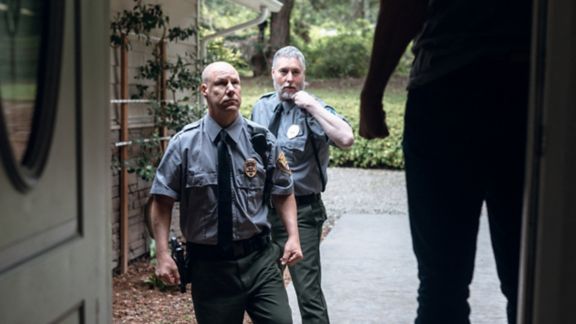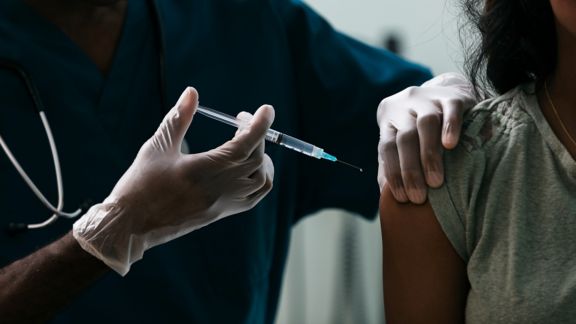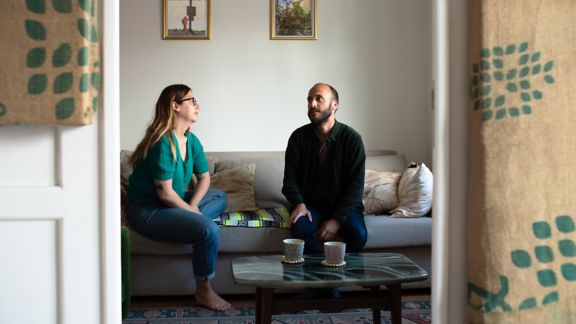Bruce Taylor

Bruce is a senior fellow with NORC at the University of Chicago in the Public Health department. He has over 29 years of experience in applied research, field experiments, and statistical analysis. His work includes multi-method approaches using nationally representative household panels; organizational surveys with service providers, jails, and law enforcement; and the collection of survey and biospecimen data. He has conducted studies on violence prevention, violent offenders, victimization, policing, substance use and stigma towards substance use. His work has focused on identifying demographic and contextual explanations for a variety of forms of violent and related risky behaviors. He has conducted research funded by a number of U.S. federal sources, such as the Department of Defense, Department of Education, Department of Health and Human Services, and Department of Justice. His research has also been supported by state and municipal sources, along with several foundations and other private sources.
At NORC, Bruce is the co-principal investigator (Co-PI) of two Department of Defense evaluation contracts: Innovations in Sexual Assault Preventions Pilot Program (ISAPPP) Evaluation and the Evaluation Training and Technical Assistance Center (ETAC). For the Centers for Disease Control and Prevention (CDC), he is the project director for a study on youth health and wellness issues and the PI for a grant on youth firearm violence perpetration using a nationally representative longitudinal design. For NIH, he is a Co-I for the Justice Justice-Community Opioid Innovation Network’s (JCOIN), Methodology Center (MAARC) analyzing the effectiveness of the JCOIN network of 11 clinical research centers testing the effectiveness of medicated assisted treatments for opioid use disorder. He was a Co-PI of the first comprehensive nationally representative longitudinal youth violence panel (STRiV) for eight years, a Co-PI of the Interpersonal Conflict and Resolution (iCOR) Study of young adults, and a Co-PI of the first national survey on victim service providers.
Prior to joining NORC, Bruce’s early work in violence research explored the psychological recovery process of sexual assault victims and explored the correlates of post-crime distress and social networks. In the mid to late 1990s, he implemented a five-year program of experimental longitudinal studies in New York City on the effects of a variety of interventions on the problem of intimate partner violence (IPV). This work was followed by randomized controlled trials (RCTs) on the effectiveness of batterer treatment programs for men in community and jail-based settings. Since 2005, with funding from three U.S. Department of Justice (USDOJ) grants and two contracts from the CDC, he conducted a series of field experiments on the effectiveness of primary prevention programs on IPV and sexual violence. Also, from 1998 to 2002, he was the deputy director of the Arrestee Drug Abuse Monitoring Program, a program within the U.S. Department of Justice’s National Institute of Justice.
Quick Links
Education
PhD
Rutgers University
MA
Rutgers University
BS
St. John’s University
Appointments & Affiliations
Chair, Justice-Community Opioid Innovation Network and Member, Survey Advisory Workgroup
National Institute on Drug Abuse
Editorial Board Member
Police Quarterly
Editorial Advisory Board Member
Criminology and Public Policy
Scientific Reviewer
National Science Foundation
Honors & Awards
AEC Fellow | 2012
Academy of Experimental Criminology
Academic Excellence Scholarship | 1990
Rutgers University
Project Contributions
Publications
-
“Prevalence of Gun Carrying and Gun Violence Victimization and Perpetration among a Nationally Representative Sample of U.S. Youth and Young Adults.”
Journal Article | November 12, 2024
-
opens in new tab“Public perceptions of opioid misuse recovery and related resources in a nationally representative sample of United States adults”
Journal Article | October 20, 2024
-
“Less-Lethal Weapons and Civilian Injury in Policy Use of Force Encounters: A Multi-Agency Analysis.”
Journal Article | October 15, 2024
-
opens in new tab“The Impact of a Youth-Focused Problem-Oriented Policing Initiative on Crime: Findings from a Randomized Controlled Trial in Three Cities.”
Journal Article | July 6, 2024
-
“Knowledge, Attitudes, and Beliefs About Opioid Use Disorder Treatment in Primary Care”
Journal Article | June 28, 2024
-
opens in new tab“Changes in Partner Seeking and Sexual Behavior among United States Adults during the First Two Years of the COVID-19 Pandemic”
Journal Article | April 24, 2024
-
opens in new tabPrevalence and Determinants of Safety Equipment Use: Analysis from a National Dataset of Law Enforcement Officers
Journal Article | March 1, 2024
-
opens in new tab"Collaboration and growth in a large research cooperative: A Network analytic approach"
Journal Article | February 1, 2024















